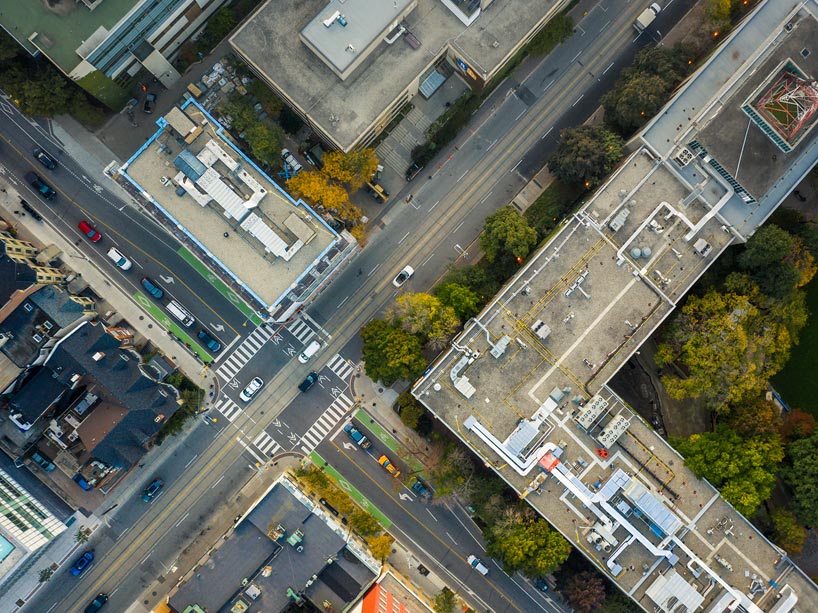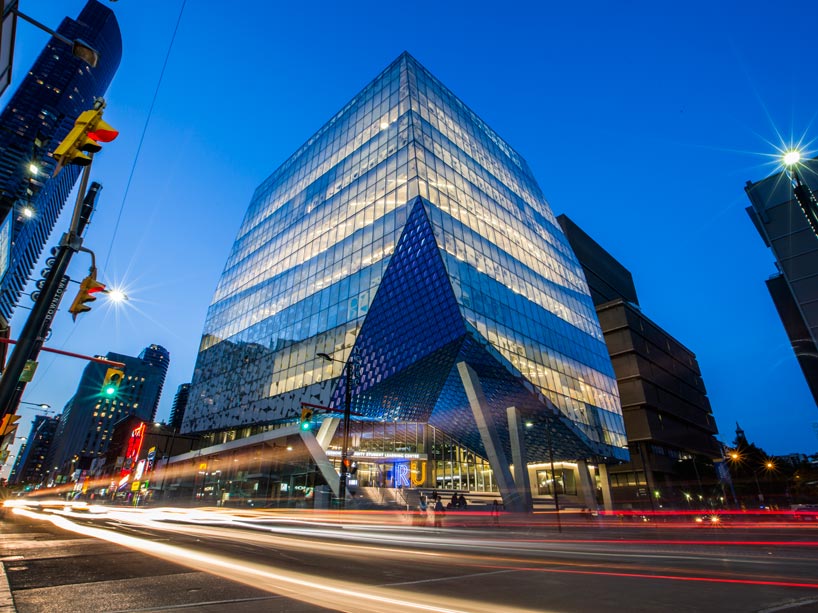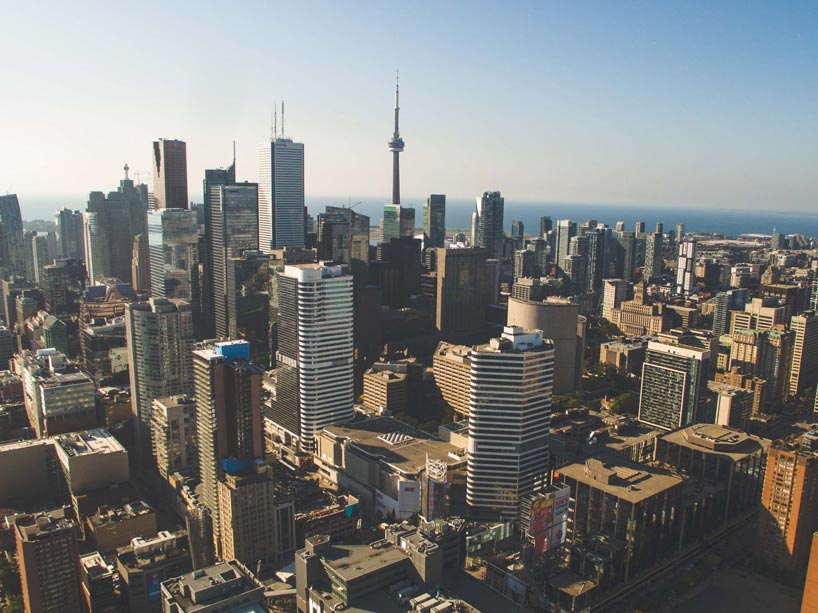Smart cities hold the key to a livable future

Researchers at Ryerson are poised to help shape the future of cities.
The future will unfold in cities.
It’s a bold statement, but one that’s backed by an array of monumental statistics that challenge one’s ability to imagine the scale of the global population and the importance of urban centres to the fate of humanity.
According to United Nations forecasts (external link) , nearly 70 per cent of the world’s population will reside in cities by 2050. That represents 6.7 billion people. Take the challenges cities face today and multiply them by the pressures imposed by overpopulation, climate change and geopolitical tumult. You could be forgiven for thinking it’s a scary picture.
But what if there was another way to approach it?

Smart cities start with a holistic approach to urban research and innovation.
Ryerson and the potential of smart cities
If cities hold the key to our global future, and all signs point to the fact that they do, then it’s never been more important to build urban hubs that are, in a word, smart. The term “smart city” might be difficult to pin down, but it suggests a place in which technological, cultural and economic ingenuity drive livability and urban health.
At Ryerson, researchers are engaged in an array of work that will help to shape the future of cities. They are exploring the ways that cities produce and store energy, novel methods to optimize urban design and harnessing technology to reimagine transportation systems and urban infrastructure.
Collectively, they know the smart cities of the future will arise from a holistic approach to urban research and innovation.

Traffic congestion is one of the many city issues researchers are looking to improve.
A place for urban innovation
In 2018, Ryerson opened the Centre for Urban Innovation (CUI), a collaborative space where innovative thinkers come together to tackle the challenges posed by our ever-growing cities. It’s the type of place where the foundation of smart cities is built.
Among the researchers working here, Bilal Farooq, Canada Research Chair in Disruptive Transportation Technologies and Services, investigates ways to ease congestion, reduce pollution, and increase the efficiency and safety of city streets with automated vehicles.
Steps away, Bala Venkatesh, the director of the Centre for Urban Energy (CUE), is transforming Canada’s electric power systems by looking at large-scale energy storage technologies. He’s joined by Jessie Ma, an IESO research fellow, who studies the economics of storing energy within the electrical grid to reduce emissions and waste.
The CUI is also home to Ryerson Urban Water where Claire Oswald investigates the cumulative impact of climate and land use on our watersheds, and researcher Carolyn Johns is advancing water policy on a local, national and global level.

Digital technologies and sustainable architecture are potential methods to combat dense urban centres.
The cities of the future start here
Beyond the CUI, researchers across campus are also tackling urban challenges with new approaches to architecture and sustainable design.
Architecture professor Jennifer McArthur uses digital technologies such as machine learning to analyze and improve the performance of urban office buildings in an effort to foster healthy work environments. Her Worker Productivity Benchmarking tool considers how spatial qualities like air quality, temperature, noise and lighting impact employees productivity and well-being.
Meanwhile, the interdisciplinary team of Alan Fung, Cheryl Atkinson and Philip Walsh bring their experience from the fields of engineering, architecture and entrepreneurship to their low carbon footprint housing project known as ZEROHouse. The modular 1,100-square-foot, wood-framed structure poses an affordable and eco-friendly solution for cities in which single-family dwellings are in high demand.
The research taking place at Ryerson represents an attitude toward the future that embraces the challenges of our ever-urbanizing population as an opportunity to rethink the form, function and potential of our cities.
Bilal Farooq will lead a tour of Ryerson’s Centre for Urban Innovation (September 24) and Avner Levin will participate on the Data Governance for the Public Realm panel (September 25) as part of the Smart Cities Summit (external link) and the Elevate (external link) technology festival.